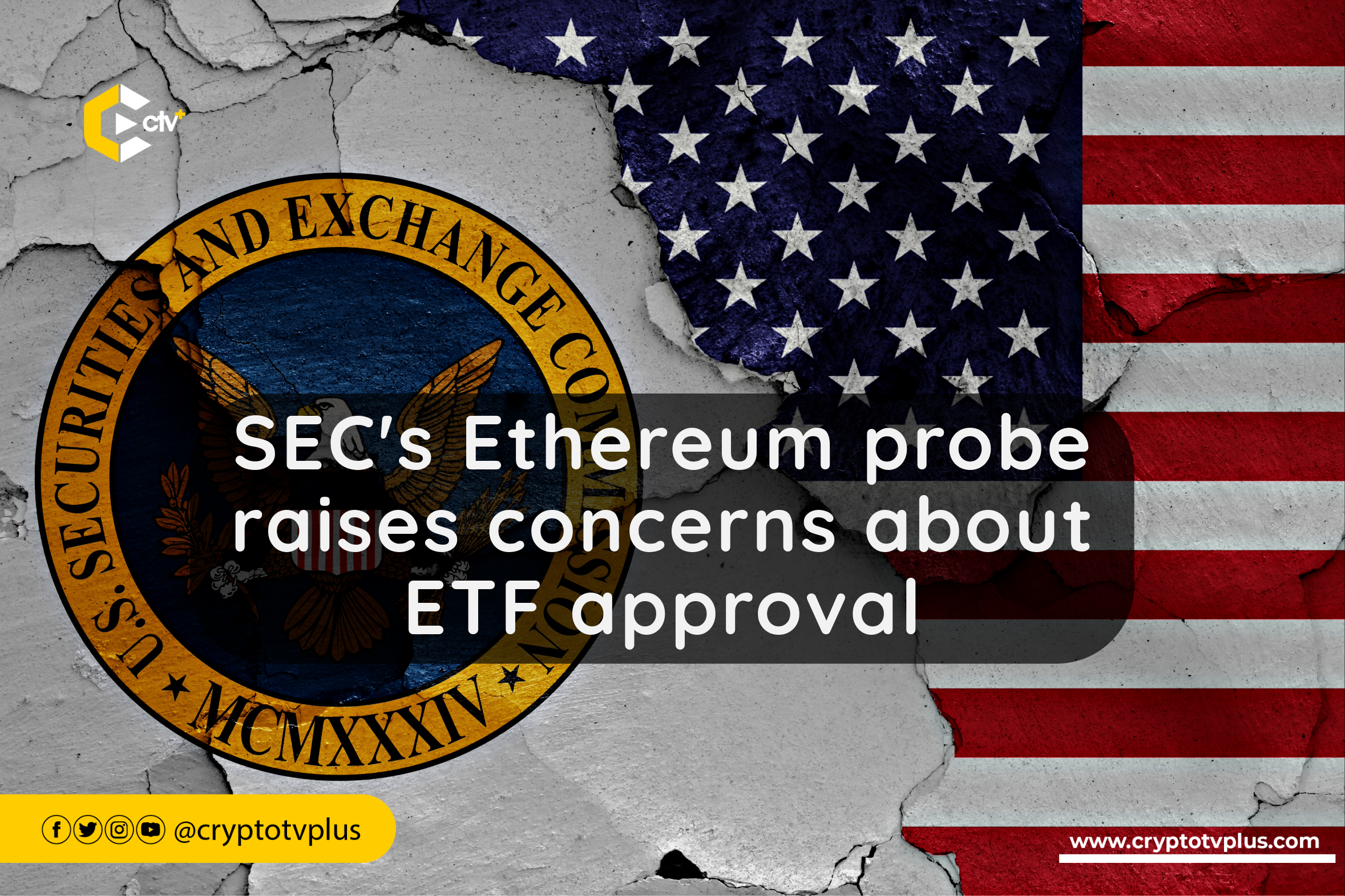News
SEC’s Ethereum probe raises concerns about ETF approval

There are concerns that the SEC’s investigation of Ethereum could serve as grounds to delay approving cryptocurrency-related exchange-traded funds (ETFs).
Speculation arose that the SEC’s scrutiny of the Ethereum Foundation might explain the regulator’s reluctance to provide clarity to potential creators of spot Ether ETFs.
Industry experts suggested that the reported investigation could be leveraged to justify rejecting or postponing the approval of spot Ether ETFs, characterizing it as a potential “coordinated attack” on Ether.
Fortune reported on March 20 that the Securities and Exchange Commission issued subpoenas to several companies that collaborated with the Ethereum Foundation.
Paul Grewal, Coinbase’s chief legal officer, contended that there was no valid reason for the SEC to deny the approval of spot Ether ETPs, citing previous statements by SEC Chair Gary Gensler affirming that Ether is not a security.
“We hope they won’t try to invent one by questioning the long-established regulatory status of ETH, which the SEC has repeatedly endorsed. That’s not how the law works.”
“This now very obviously feels like a coordinated attack on ETH,” said Travis Kling, chief investment officer of Ikigai Asset Management, in a March 20 X post. “I wonder what’s gonna happen.”
Fox Business’s Eleanor Terrett theorized that the recent subpoenas may have influenced the SEC’s reluctance to engage with proposals from those seeking to launch spot Ether ETFs.
Bloomberg ETF analysts Eric Balchunas and James Seyffart revised their estimate of the likelihood of an approved spot Ether ETF by May, citing the SEC’s apparent lack of interaction with issuers of spot Ether ETFs as a primary factor.
Patrick McHenry, Chair of the House Financial Services Committee, among others, publicly expressed concern that the reported campaign to classify ETH as a security would deviate from the SEC’s previous stance on the matter.
Former CFTC commissioner Brian Quintenz pointed out that the SEC acknowledged Ether’s non-security status when it greenlit ETH futures ETFs last October.
Charles Hoskinson, Cardano’s founder, suggested that the SEC’s view on Ether’s security classification might have shifted following Ethereum’s transition to a proof-of-stake consensus mechanism in September 2022.
Brian Quintenz noted that the SEC would have factored in the Merge before approving the ETH futures ETFs, given that the Merge occurred first.
He highlighted that if the SEC were to classify Ether as a security, derivatives like listed Ether futures ETFs would be deemed securities futures contracts, subject to a different regulatory framework.
“It will be interesting to watch what, if any, excuse the SEC uses if it were to delay or deny an ETH ETF, given it has already informed the market on ETH being outside its jurisdiction,” added Quintenz.
The SEC continually postponed decisions on spot Ether ETF applications, extending deadlines to May or beyond.
Among the major asset management firms that filed applications for spot Ether ETFs were BlackRock, VanEck, ARK 21Shares, Fidelity, Invesco Galaxy, Grayscale, Hashdex, and Franklin Templeton.
Balchunas and Seyffart projected initial rejection of spot Ether ETFs, with eventual approval expected before 2025.
Read also: Ethereum Foundation alongside zkSync allocates $900K for ZK Layer 2 development

























Pingback: BlackRock taps Coinbase for first Tokenized Investment Fund | CryptoTvplus - The Leading Blockchain Media Firm
Pingback: ETH's Pectra upgrade to raise max validator stake from 32 to 2048 | CryptoTvplus - The Leading Blockchain Media Firm